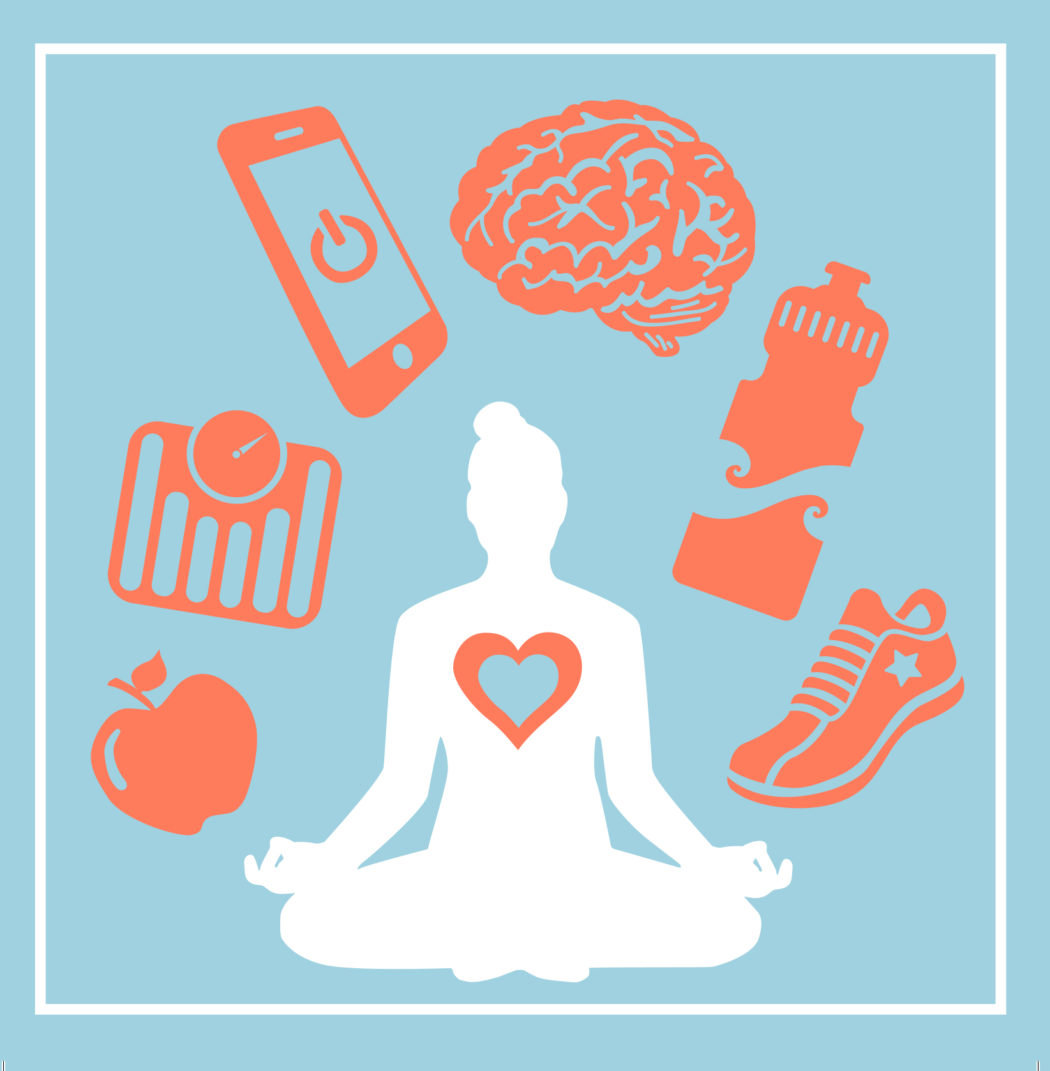Healthy habits to improve mental health
Because of the various causes of mental health problems and differing experiences of individuals, mental health is a difficult and complex topic.
While different people may have different needs, creating healthy habits can help maintain or improve mental health. Here are some professionally-recommended habits used by students at Utah State University to help ease and control the symptoms of mental health problems.
Get active
Exercise is one of the most common recommendations to improve mental health. According to multiple studies, regular exercise is shown to not only help with physical fitness, but to relieve stress, improve sleep and decrease symptoms of anxiety and depression.
Angela Johnson, a USU student majoring in outdoor recreational therapy, uses exercise and outdoor activities to handle the stress of schoolwork and other responsibilities. “For me, it’s a let-out,” Johnson said. “It helps me get away from the things that are stressing me out.” She also said that getting outside and exercising helps her be happier and more productive.
Whether it is taking a walk around campus or going snowboarding, daily physical activity is an effective tool in increasing confidence and building positive mental health.
Limit screen time, especially social media
With the advent of the smartphone, we now have screens in front of us almost constantly. Recent research from The Nielsen Company found that American adults spend over 11 hours a day interacting with media. While social media allows for easier communication between friends and family, it may be taking a toll on the mental health of its users.
A study from the University of Pennsylvania observed 143 undergraduate students and their mental health statuses. One group of students limited their social media use to 30 minutes a day while the other group used it as normal. After three weeks, the group that limited social media use showed a significant decrease in loneliness and depression.
As a result, researchers in this study recommend setting a limit of 30 minutes of social media use every day. Self-monitoring screen time is also believed to decrease symptoms of anxiety. Monitoring social media use and screen time is now very easy, as many smartphones have built-in or downloadable apps that can help track app usage.
Find activities you enjoy
Nicole Fleming, a student studying computer engineering, found that art helped her deal with stress during high school when she started sculpting. Since coming to USU, she has taken up painting to help her maintain her mental health. “It takes a level of focus that has just helped me forget about what things are really stressful,” she said.
While painting might not be your activity of choice, it is important to find hobbies to do outside of schoolwork. These types of activities, whether it be playing the guitar or board games with friends, can help wind the brain down after a stressful day and give a chance to focus on other things in life.
Watch what you eat
When feeling down or anxious, it can be easy to fill meals with heavily processed comfort food. However, research shows that people will be better off eating healthy, both mentally and physically.
In a post on the blog of the Harvard Medical School, Doctor Eva Selhub argued that what we eat influences our brains and how we function. She said that research has shown that diets high in fruits and vegetables, fish and unprocessed grains help regulate the levels of serotonin in our bodies. Serotonin helps regulate things like our sleep schedules and moods. This improved regulation results in better physical and mental health.
Take time to be mindful
Mindfulness is a common technique to help maintain mental health, and it has become more popular in recent years. According to Jon Kabat-Zinn, director of the Center for Mindfulness at the University of Massachusetts Medical School, mindfulness is “paying attention in a particular way: on purpose, in the present moment and nonjudgmentally.” Mindfulness is one of the core principles of meditation and yoga.
Jessica Spackman, a senior in technical communication at USU, has found that doing yoga multiple times a week has helped her take control of her mental health. “I am prone to anxiety and have noticed a difference in the days and weeks when I have done yoga and when I have taken time for myself,” she said.
Yoga and meditation resources can be easily found on the internet. Spackman, for example, practices yoga on her own by using YouTube, including the popular channel “Yoga with Adriene.”
Meditation apps like Calm and Headspace have also become popular and include routines that range in length from one minute to an hour. Many of these apps offer free trials, and Headspace offers a student plan at $9.99 a year.
In addition, many free resources are compiled on the “Biofeedback” page of USU’s Counseling and Psychological Services website. These resources can be found underneath the section entitled “Relaxation Audios, Websites & Apps” (https://counseling.usu.edu/biofeedback/index).
Other resources and tips to improve overall wellness can be found at http://aggiewellness.usu.edu/ or by visiting CAPS in room 306 of the Taggart Student Center.
—alek.nelson@aggiemail.usu.edu
@nelsonalek

